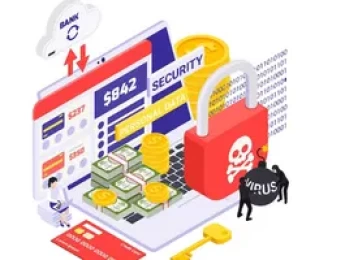In recent years, with changes and strains on the economy, private-sector accounting has become unsuitable in some circumstances. This has introduced a need for public sector accounting to properly manage the credibility and quality of finances and reporting to ensure that business accounts are all in order.
The IPSAS provides a holistic framework that fits all business models and sets an example for ideal accounting methods. This ensures a set process for taxation, budgeting, and understanding profits and losses to give businesses a clearer picture of their finances than ever, allowing for proactive planning, prioritisation, and continuous improvement.
Upon completion of this course, participants will be able to:
- Understand and utilise the International Accounting Standards.
- Differentiate the aspects of the old standard from those of the new.
- Create a clear stepped progression matrix for IPSAS implementation.
- Understand how financial reporting is affected by IPSAS.
- Equip employees with key accounting techniques and tools to implement change.
- Develop effective and accurate record-keeping processes.
- Ensure employees are aware of correct income, expenditure, and revenue procedures.
- Create effective consolidation and collaboration processes between departments, partners, and stakeholders.
- Create benefits realisation and risk management plans to ensure business continuity.
- Recover appropriately from downturns or changes to financial stability within the business.
- Develop broader taxation strategies and asset management procedures which meet with compliance and internal governance.
This course is designed for anyone responsible for accounting procedures, taxation records, or any other financial procedures within a business or anyone tasked with making high-level financial decisions based on data. It would be most beneficial for:
- Internal Auditors
- Accountants
- Governance Directors
- Risk Assessors
- Financial Professionals
- Business Owners
- CFOs
- Compliance Monitoring Officials
- Public Sector Finance Staff
This course uses various adult learning techniques to aid full comprehension. The high-quality programme contains presentations and practical learning exercises to help students understand proper accounting ideologies and ideas in the public sector. Group problem-solving exercises using real-world examples relieve stressed accounting and manage taxation to benefit a company.
Participants will learn how different organisations work through the transition process and embedding of new reporting to create a successful IPSAS process and how to identify and manage risks as they occur.
Day 5 of each course is reserved for a Q&A session, which may occur off-site. For 10-day courses, this also applies to day 10
Section 1: IPSAS – An Introduction
- Government accounting concepts.
- Cash-based accounting – flaws and benefits.
- Accrual accounting.
- IFAC.
- Creating accurate financial reports and audit trails.
- The IPSASB organisation and relationships with IPSAS.
Section 2: IPSAS Benefits & Requirements
- The benefits of OPSAS.
- Public sector accounting changes and requirements.
- The IPSAS standards.
- Accrual vs. cash accounting.
Section 3: Accounting Policies
- Regulations environments and IPSAS structure.
- Producing financial position statements.
- Cash flow statement developments.
- Segmentation reporting and disclosures.
- Reporting on changes and asset distribution.
- Compliant notes and process changes.
Section 4: Revenues, Cash & Budget Management
- Non-exchange revenues: IPSAS-23.
- Exchange revenues: IPSAS-9.
- Construction contract agreements: OPSAS-11.
- Cash receipts and payment tracking.
- Budget information presentations and statement evaluation.
Section 5: Assets & Liabilities
- Property, plants, and equipment investments: IPSAS-16-17.
- Asset impairment: IPSAS -31,21 and 26.
- Borrowing and cost leasing: OPSAS-5 and 13.
- Contingent assets and liabilities: IPSAS-19.
- Financial instruments: IPSAS-28, 29, and 30.
- Creating adequate inventories: IPSAS-12.
Section 6: United Nations Cause & Effects of OPSAS
- The accounting rules across the United Nations.
- Key concepts and studies.
- Adoption of the IPSAS standards in different countries.
- UNSAS vs. IPSAS.
- The progress report based on the current rollout.
Section 7: IPSAS Implementation & Change Management
- Transitioning from cash to accrual accounting in government.
- Governance and compliance during change.
- Issues and root-cause analysis.
- Unified chartered accounts.
- Selecting the right budgets to work with.
- GPFS.
- Developing financial statements, revenues, and receivables.
- PP&E.
Section 8: IPSAS Rules & Guidelines for Success
- Working out payables and expenses.
- How to decipher inventories.
- Assets and leases.
- Contingency and liability management.
- Pre-financing options.
- Budgeting with NCOA.
- GPFS accrual and cash changes.
- Impacts of auditing on control systems/
- The role of IT in accounting and systems management.
Section 9: Disclosures & Consolidation
- How to deal with related party disclosures.
- Gaining financial information in the government sector.
- How to consolidate under cash only basis.
- Non-mandatory disclosures and case studies.
- Change management and adoption procedures.
Upon successful completion of this training course, delegates will be awarded a Holistique Training Certificate of Completion. For those who attend and complete the online training course, a Holistique Training e-Certificate will be provided.
Holistique Training Certificates are accredited by the British Assessment Council (BAC) and The CPD Certification Service (CPD), and are certified under ISO 9001, ISO 21001, and ISO 29993 standards.
CPD credits for this course are granted by our Certificates and will be reflected on the Holistique Training Certificate of Completion. In accordance with the standards of The CPD Certification Service, one CPD credit is awarded per hour of course attendance. A maximum of 50 CPD credits can be claimed for any single course we currently offer.
- Course Code PF1-109
- Course Format Classroom, Online,
- Duration 5 days














